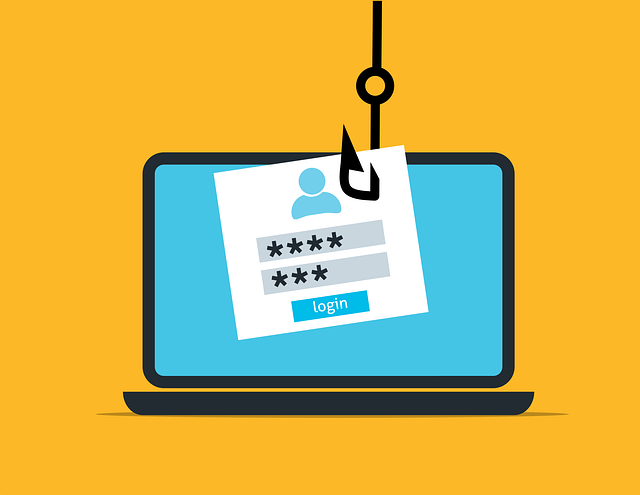Rental fraud in college housing is common, so students should be vigilant. By verifying landlords, checking reviews, and visiting properties, they can avoid overpriced or substandard accommodations. Landlords can prevent fraud through rigorous tenant screening, identity verification, and fair practices, creating a secure housing environment for students. Regular communication and detailed lease agreements are key to minimizing risk.
“Navigating the college housing market can be challenging, especially with the rise of rental fraud. This comprehensive guide aims to empower students and parents alike to understand, identify, and prevent fraudulent activities. We explore common scams targeting vulnerable tenants in higher education areas. By learning about these schemes, you can protect yourself legally and financially. Additionally, we highlight the roles of landlords and property managers in combating fraud, along with essential preventive measures for a secure rental experience.”
- Understanding Rental Fraud in College Markets
- Identifying Common Fraud Schemes
- Protecting Yourself as a Tenant
- Roles of Landlords and Property Managers
- Preventive Measures and Best Practices
Understanding Rental Fraud in College Markets

Rental fraud in college housing markets can take many forms, from false listings and scams to overpriced and substandard accommodations. Understanding these schemes is the first step in avoiding rental fraud. Students often find themselves vulnerable in unfamiliar cities with high demand for affordable housing near campuses. Scammers capitalize on this by creating fake listings, charging excessive fees, or misleading potential tenants about property conditions.
Familiarize yourself with common fraud tactics and always conduct thorough research before signing any lease. Verify the landlord’s identity, check online reviews from previous tenants, and visit the property in person if possible. Don’t rush into a decision—taking your time can help protect you from falling victim to rental fraud and ensure a safe and secure living experience during your college years.
Identifying Common Fraud Schemes

College housing markets can be a breeding ground for rental fraud, with sophisticated schemes targeting both students and landlords. Understanding common fraudulent activities is the first step in avoiding rental fraud. One prevalent tactic involves con artists posing as legitimate landlords, advertising attractive off-campus accommodations at seemingly too-good-to-be-true prices. They may use fake listings or mimic trusted platforms to lure unsuspecting tenants. Another scheme includes fraudulent lease agreements with hidden clauses, unfair terms, and fabricated details about the property’s condition.
To protect themselves, students should thoroughly research potential housing options, verify landlord identities, and carefully review contracts before signing. Cross-referencing listings across multiple sources can help expose falsified ads. Additionally, being cautious of unusually low rent or sudden changes in pricing structures can serve as a red flag for potential fraudsters.
Protecting Yourself as a Tenant

When renting off-campus housing near a college, it’s crucial to protect yourself from potential rental fraud. Start by thoroughly researching the property and landlord before signing any lease or paying any deposits. Verify the legitimacy of the listing through multiple sources—check online reviews, reach out to current tenants (if possible), and confirm contact information for the landlord or property manager. Be wary of deals that seem too good to be true; unscrupulous landlords might offer significantly below market rates to attract unsuspecting students.
Additionally, always ensure that all communication is done through official channels. Never wire money or provide sensitive information via unsecured methods. Keep detailed records of all conversations, emails, and agreements with the landlord or property manager. Regularly review your lease agreement for any unusual clauses or terms, and don’t hesitate to seek legal advice if something feels amiss. By taking these precautions, you can significantly reduce the risk of falling victim to rental fraud.
Roles of Landlords and Property Managers

In the dynamic college housing market, landlords and property managers play a pivotal role in preventing rental fraud. They are the first line of defense against deceptive practices that can negatively impact both tenants and their businesses. Responsible landlords and managers understand the importance of thorough screening processes, including verifying income, credit history, and employment details to ensure potential tenants are legitimate. Additionally, they implement robust verification procedures for identification documents, further mitigating the risk of fraud.
These professionals also foster open communication channels with tenants, establishing clear expectations and guidelines. Regular inspections, prompt response to maintenance issues, and fair rent collection practices contribute to a transparent environment. By adhering to ethical standards and staying vigilant, landlords and property managers can significantly reduce instances of rental fraud, ensuring a secure and trustworthy housing experience for students.
Preventive Measures and Best Practices

To prevent rental fraud, both landlords and prospective tenants should adopt best practices and precautionary measures. Landlords must verify tenant credentials, including employment and income verification, to ensure financial stability. They should also conduct thorough background checks, cross-referencing information from multiple sources to uncover any red flags. Additionally, using secure online platforms for lease agreements and communication reduces the risk of document tampering.
Prospective tenants, on their part, should carefully review lease terms and conditions, seeking clarification on any unclear points. It’s crucial to pay close attention to details regarding security deposits, rent payment methods, and termination policies. Tenants should also feel empowered to report any suspicious activities or documents to the landlord or relevant authorities. Regular communication between both parties builds trust and helps maintain a transparent environment, further mitigating the risk of rental fraud.














